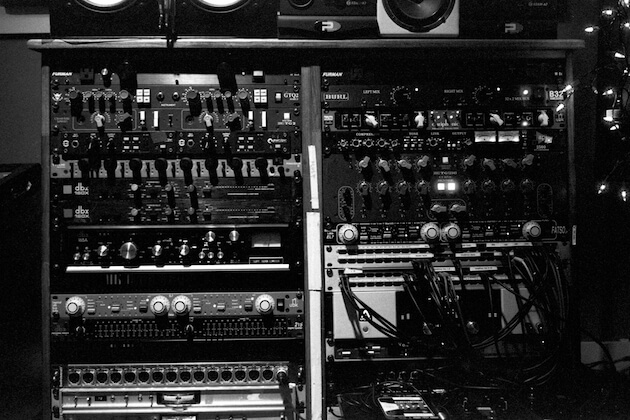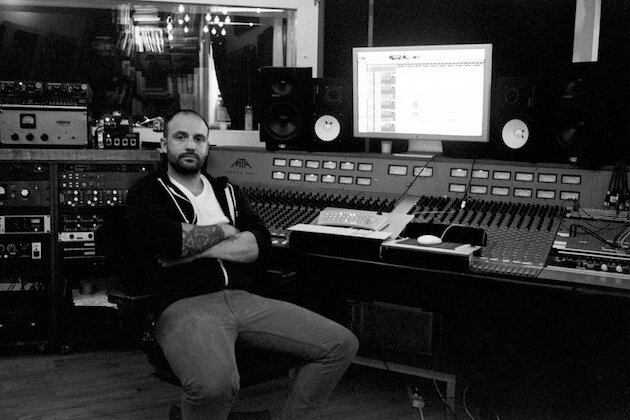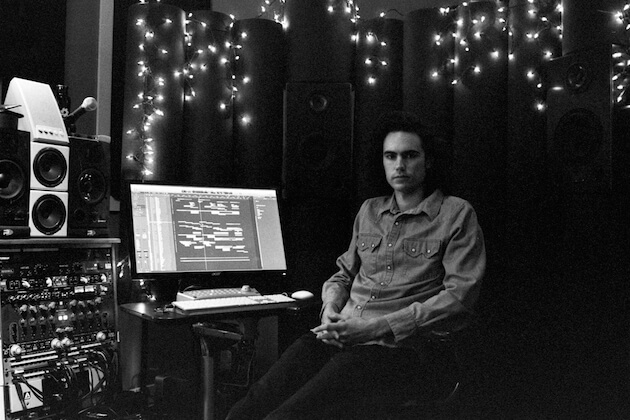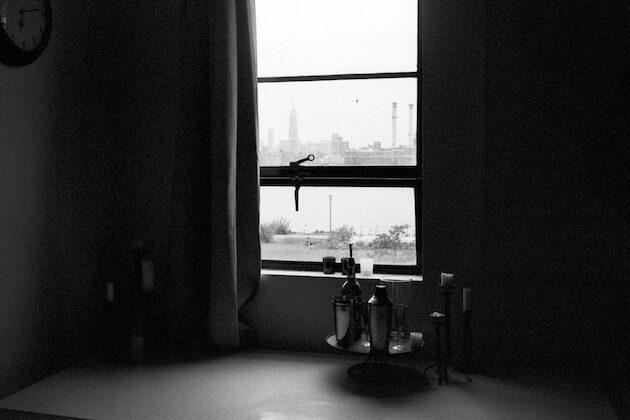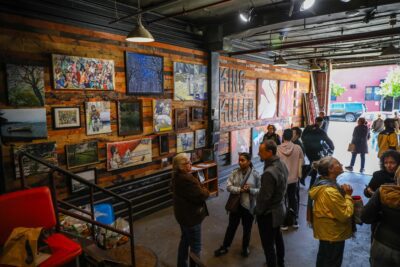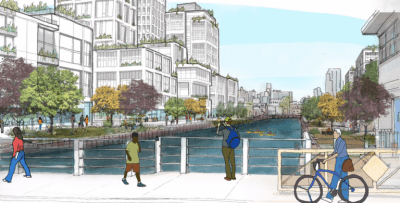Inside The End Recording Studio, Greenpoint’s Hub For Creatives
Four years ago Brian Crowe began looking for a warehouse space in Brooklyn with his high school friends Neal Sherlock, Matt Flynn and Brian Binsack. They’d grown up on Long Island playing music and recently reconnected in New York City. Booking studio time had become too expensive and so they decided they wanted to build out a recording studio where they could work on their respective musical projects.
They soon found a space on the waterfront at the far North end of Greenpoint, just two blocks from the Greenpoint Avenue G stop. The place was a disaster inside, the floor was falling through and it would need a complete overhaul if it were to ever become functional. Over the next few years they would dump their life savings into the place, building out the entire 3,500 square feet themselves. It was a learning process. None of them had ever built a studio before and they weren’t exactly sure how things would turn out. “It was this is how many square feet we have,” Crowe explains. “How can we utilize financially every square foot of this place and really get the most out of it and cut a lot of corners?”
It would be two years before The End was ready for full operation. They threw events along the way, hosting art shows, holding showcases for bands and using portions of the studio as a live music venue for a period of time. “We weren’t making that much money off the first events,” Crowe tells me. “We would just do things with whoever was doing something and that would lead to new connections. That’s pretty much how we met everybody. It was like, ‘Cool we have this awesome spot, we’re still building out this studio, why don’t we throw an event over here and let people know what we’re doing?’ And we actually got our first bookings through that, it was totally unplanned.”
Crowe very quickly took on the role of house engineer, his own projects pushed to the sideline to keep up with the steady stream of work coming to the studio. Since then, he’s worked on a bit of everything. Being a Brooklyn-based studio, the majority of The End’s clientele falls under the indie-umbrella, but they’ve also cut metal records, worked with electronic groups, and collaborated with jazz, house and hip hop artists from all over the world. Their resume has grown to include names like Unknown Mortal Orchestra, Nicholas Jaar, High Highs, Talib Kweli, Strange Names and Mac Miller.
Crowe and his co-founders had realized early on that they would need to get creative if they were to keep the space financially viable and so they came up with an unusual model to keep themselves afloat. The finished studio includes two control rooms, two live rooms and a series of private production rooms. The idea was to rent out the production rooms to independent producers while keeping the other rooms behind them to handle the projects that the studio would take on. It’s shrewd logic in a time of ever-shrinking budgets within the music industry, the private rooms serving as a financial cushion to generate consistent revenue beneath the records that come through their doors.
Andrew Maury is an audio engineer and producer who has been renting one of the production rooms at The End for about 18 months now. For him the studio’s setup is the perfect the balance. He’s able to maintain his own private room while still having access to the amenities of the larger facility. “I do a lot of recording and mixing in this room,” he explains, “But I’ll book the live room when there’s enough of a budget to do drums more properly. I really can’t imagine anything more convenient. I’m paying rent but I have access to basically a full studio and their mic collection.”
“Guys like Andrew can have their own room inside here,” Crowe adds. “If they need to use one of the live rooms, use some of [the studio’s] gear or expand upon the gear they have in their room… then there’s someone in here who probably has it.”
Fostering that atmosphere of communality was important to Crowe. The rooms are built around a series of common spaces that include a full kitchen, various lounges and a 2000 square foot roof deck that spans two levels. They share equipment, bounce ideas and offer their expertise in any number of ways. There’s an undeniable ambiance to the space, a feeling of tranquility that’s more akin to a spiritual retreat than a converted warehouse space in North Brooklyn. “Look, you can have all the gear in the world, but we have a space where people like hanging out and that harbors creativity and so records get cut here. It’s amazing. Whereas we can go to a bigger, better studio but people aren’t accomplishing things there. It’s cool, everybody feels welcomed here.”
Like many other businesses in their neighborhood, The End’s faces an uncertain future. The pace of changing landscape has accelerated in recent years, with proposed build-outs coming in all along the waterfront. The immediate neighborhood is growing ever-taller with many business owners losing their leases as the property values continue to skyrocket. The building itself is prime real estate for prospective developers, overlooking the recently completed Transmitter Park and boasting an unrivaled view of the Manhattan skyline.
As for Crowe, he tries not to think too much about what’s yet to come. “The future will just let us go where it’s headed. That’s how this started in the beginning, so everything is determined by the neighborhood. I don’t exactly know when the lease is going to end. As far as I know we have until February, but the neighborhood is going to tell me what’s going to happen. I don’t know if we stay here and continue here and expand and get bigger, take another space over, I don’t know.”
“If we could sum up this whole thing, it’s that everybody in the neighborhood kind of needs to stand up for what this neighborhood is. If no one says anything and just kicks back, it will be taken over and it will not exist the way it is.“
You might also like 









